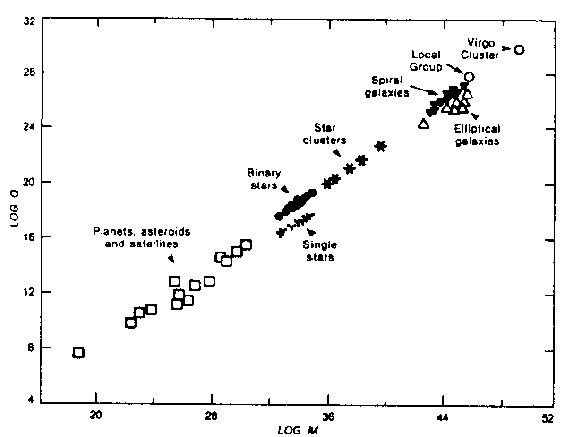 |
Science Frontiers ONLINE No. 122: Mar-Apr 1999 |
|
|
Is a singularity worse than a spinning cosmos?
Whence the untold billions of stars and galaxies that brighten our night skies? From a "singularity," that's where -- from an infinitely small point in space. The Big Bang hypothesis requires this abandonment of common sense. Both mathematicians and cosmologists instinctively hate singularities. The latter have been trying to exorcise theirs for years. Recently, S. Carneiro, a Brazilian physicist, proposed a way to get rid of this natal singularity but retain the expanding universe. First, he assumes that the universe has been around for an indefinitely (infinitely?) long time, thereby eliminating the problem of origin. Furthermore, this universe was rotating. About 11 billion years ago this spinning universe was transformed into the expanding universe we see today via that clever cosmologists' ploy called a "vacuum phase transition." Carneiro shows how the rotation of the universe-as-a-whole was converted into overall expansion in a paper submitted to the journal Classical and Quantum Gravity.
But even if all of Carneiro's equations check out, angular momentum still had to be conserved somehow during the phase transition. Simple! The angular momentum of the universe-as-a-whole was transferred to the spins of all the individual planets, stars, and galaxies. In fact, the angular momentum of each astronomical entity, according to Carneiro, is proportional to its (mass)1.7 . This turns out to be pretty close to the astonishing, still-unexplained observation that the angular momentums of planets, stars, and galaxies are proportional to their (masses)2 .
(Matthews, Robert; "Cosmic Carousel," New Scientist, p. 19, December 19/26, 1998-January 2, 1999.)
Questions. How did the early universe acquire its primordial spin? About what axis did it spin? Wasn't this axis a favored place that is verboten in modern cosmology? Is the Big Bang's singularity worse than all these new questions?
 Possible universal relationship between angular momentum and mass for vaious astronomical objects. Should be universe-as-a-whole be added at the upper right? (from Science Frontiers). |